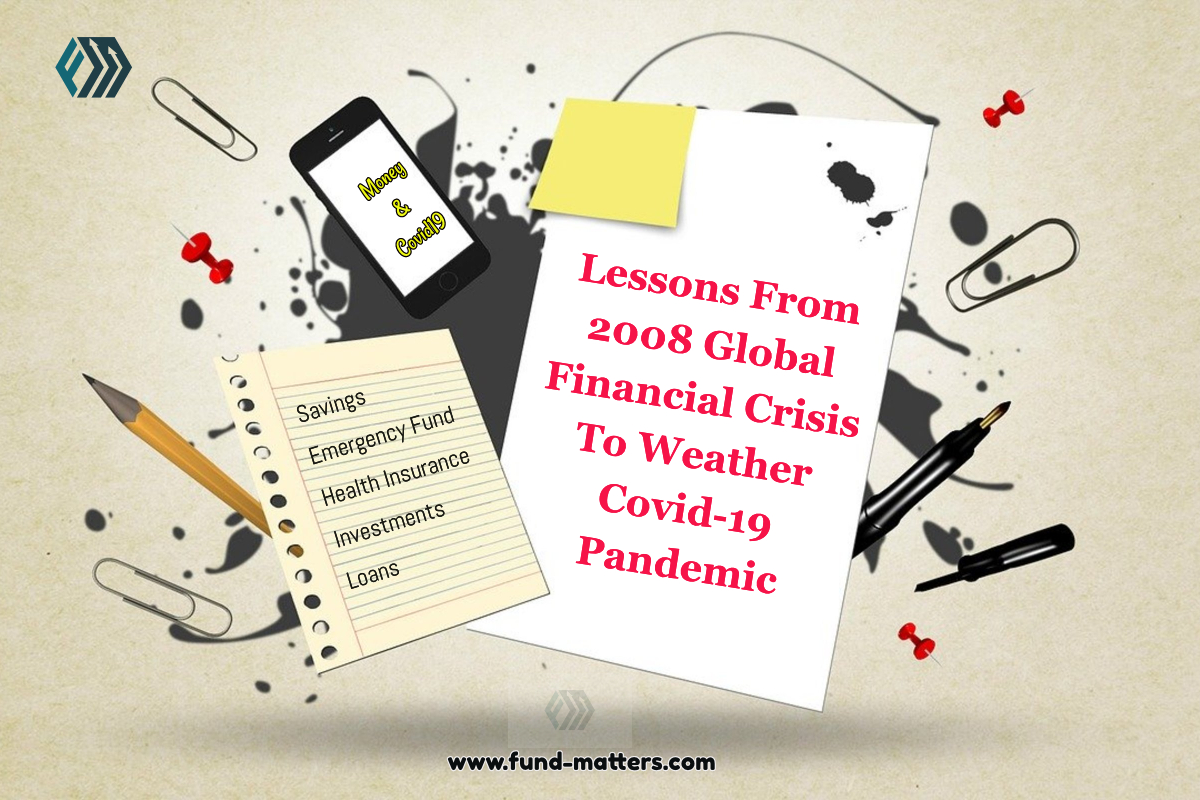Lessons From 2008 Global Financial Crisis To Covid-19 Pandemic


Covid-19 has brought the world to a standstill and though the ramifications of the present crisis could be similar to the 2008 great recession, the scale of the impact is still not quantifiable. What we witnessed in 2008 was a liquidity problem and what we see today is an insolvency problem.
The underlying cause of the economic slowdown or recession likely in coming quarters due to Covid crisis is fundamentally different from that of the Great Recession. The Great Recession was a result of financial imbalances—starting primarily in the housing sector. This one is from a totally external factor, the coronavirus disease (COVID-19). The 2007-08 recession saw a slow grind to recovery as households and banks gradually got back on their feet. The coronavirus crisis is predicted only to be a short-term struggle, with the global economy expected to swiftly rebound once the pandemic is brought under control. This isn’t guaranteed though and there is a lot of uncertainty with respect to the timespan required to control the virus.
For all their differences, the global financial crisis and the corona financial crisis are similar in one respect— they both teach us life-enhancing lessons. The 2008 global financial crisis made many professionals and middle- class people better prepared for the next crisis.
Financial planners said that the 2008 crisis taught people a few key lessons. First, to build an emergency corpus. This is often neglected until one faces a serious liquidity crunch. Second, having an independent health insurance policy. Depending on the employer-provided policy is a mistake people realized then, only after they lost their jobs. Third, to never cross the limit when it comes to liabilities. Make sure EMIs don’t exceed one-third of your net income. Fourth, keep away from high-cost debt such as personal loans and credit cards. Fifth, keep a check on your lifestyle expenses. A lavish lifestyle makes it difficult for people to deal with financial uncertainty because it hits them like a meteor.
There is always an upside to those people who have gone through the 2008 crisis and learning to save for a bad day is just one of their many realizations. Another byproduct of witnessing a crisis is embracing up-skilling in a big way and having a flexible outlook towards employment. It’s precarious times like these that help you understand how loans and outlandish lifestyles can hurt, whereas savings and investments can come to your rescue.
No contingency plan is complete without an adequate emergency fund. An emergency fund is a great way to meet our day-to-day liquidity requirements in the absence of a regular income or job loss or while tackling any other type of financial emergency. It’s important to ensure your emergency fund is worth at least 6 months of your expenses; however, you may want to increase its size further to be in line with your requirements.
Loans are great enablers to fulfill our critical life goals like buying a home or a car. However, it’s critical you evaluate your repayment capacity carefully before signing up for any financing facility as an unaffordable loan could not just destroy your finances but may also lead to a loss of a precious asset and cause immense psychological stress along the way.
The coronavirus crisis has already started forcing some employers to reduce their staff and things may deteriorate further if the economy doesn’t bounce back quickly. In such a situation, managing a medical emergency that requires hospitalization could get extremely difficult if you no longer have your employer-provided group health insurance coverage. The resultant financial burden could drain your precious savings, require liquidation of essential investments, or push you into debt. As such, it’s always advisable to get a comprehensive health insurance plan for yourself and your dependent family members even if you are covered by your office policy.
The Covid-19 crisis has severely impacted most investment avenues. The resultant market volatility has wiped off years of profits, deposit rates have slumped, small savings schemes are offering lower returns, and the realty sector is undergoing an extreme slowdown. However, gold investments have fetched good returns. The lesson being, always try to spread your investments across various asset classes with varying degrees of risks and returns in order to minimize the overall investment risk.



